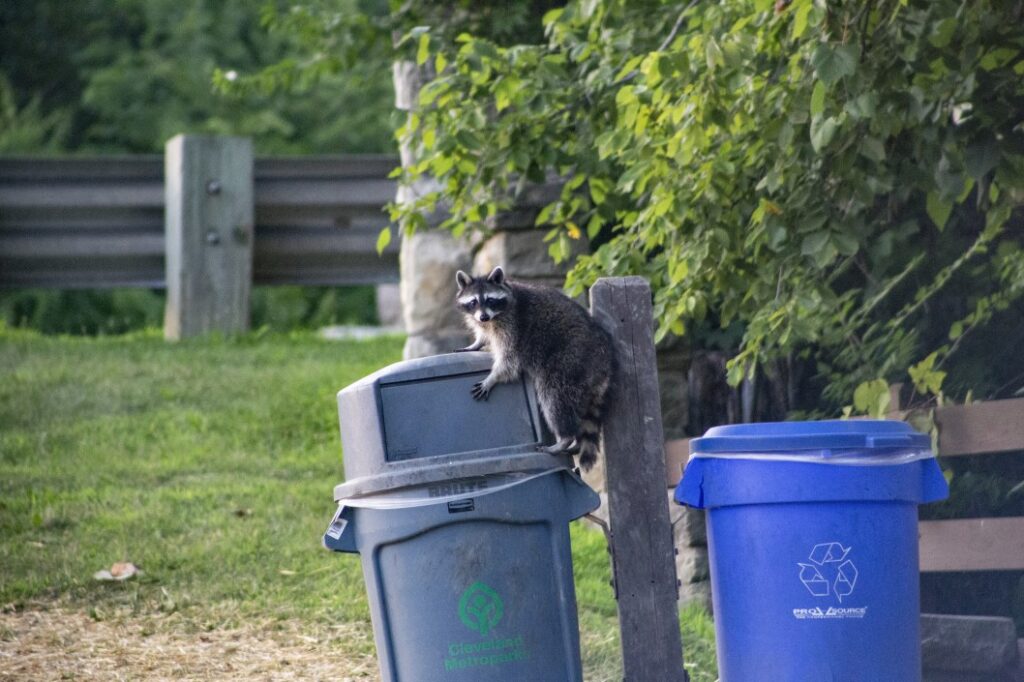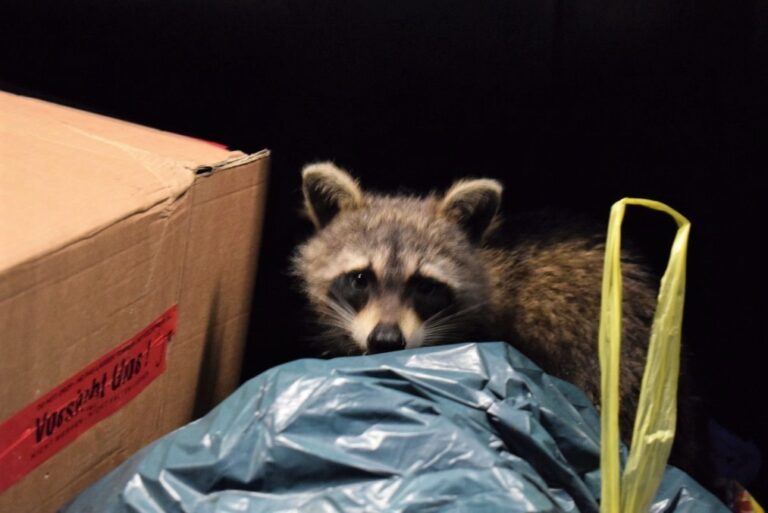
February 18, 2021
Why Do Raccoons Eat My Garbage?
Urban raccoons are on the rise and currently, they are forced to coexist with humans. You might view raccoons as adorable animals with small cute faces but don’t be fooled by their appearance. When they are hungry, they can rummage through the trash in your yard and leave a mess in your garbage bins.
So, do you wonder why raccoons raid your trash cans and scavenge through your garbage? This article will answer that.
Do Raccoons Eat Garbage and Why?
When not in the wild, raccoons will eat garbage that humans leave outside. But why do they eat trash? The simplest answer to this is because they have no choice. In an urban setting, your trash can is the easiest place they can get food.
Raccoons are also lazy, there is no doubt about it and the closer and more accessible food is to them, the better. Now that garbage bins and trash cans are available in abundance, especially in urban places, they make their lives so much easier.
Can Raccoons Get into Garbage Cans?
Raccoons are agile and can open garbage cans and bins easily and quickly scavenge the food in there. What’s more, they are also known as the expert garbage divers, they can climb, or jump up, and they will do anything to access food in a bin or can.
If they are unable to jump in, they can even knock over garbage cans for food. When they finally make it into your garbage can, they will dig through the items in there in search of food scraps. Garbage cans are also the unconventional places where they can get a wide variety of foods.
What Do Raccoons Like to Eat the Most in the Trash?
Raccoons are opportunistic eaters and will scavenge on pretty any kind of food found in your trash. They are omnivores and love eating meat scraps and freshly disposed of veggies. They are particularly fond of eating grapes. In addition, these wild animals have also been spotted eating a wide variety of fruits like melons or berries, sweetcorn, bread, and eggs.
Despite their scavenging nature, raccoons will try to avoid rotten food unless they have no other place to get food. Since getting the same garbage can food is hard in the world, they would rather spend the whole day knocking over garbage cans or jumping from your garbage can to your neighbor’s.

Why Don’t Raccoons Easily Get Sick on Eating Garbage?
It’s hard for a raccoon to get sick because of eating garbage foods, and there are reasons for that.
First, they have long intestinal tracts. This means that they are able to get rid of most of the toxins in the garbage food during the digestion process. Secondly, their stomach is highly acidic and will kill most of the harmful bacteria before they have a chance to work on them.
Lastly, most raccoons have evolved to know what foods can be harmful to them. They will avoid such foods in most cases and with this, they will hardly get sick.
What Foods in the Trash Are Toxic to Raccoons?
Even with these evolutions and resistance, there are some foods containing bacteria that are toxic to raccoons and can make them sick. Most of these bacteria will be present in rotten foods that they try as much to avoid.
Common toxic food to raccoons include nuts like macadamia, chocolate, and raisins. Onions and garlic are also known to cause anemia in raccoons. Thus, you should be careful what you are tossing in the trash as some items might be toxic to this wildlife. Luckily, there is no toxic agent that will wipe out the entire raccoon population.
Do Raccoons Carry Diseases?
Raccoons can carry and transmit a few illnesses to humans, the common one being a virulent strain of rabies. Their furry body can also carry infected ticks, lice, and fleas. Due to this, you should avoid engaging and cornering them but instead make loud noises from afar; this is often enough to scare them off.
However, if raccoons are a nuisance on your property, you can always reach out to a local wildlife control specialist for further guidance on how to deal with them.
Hopefully, now you understand why garbage food is so desirable to raccoons and why they are a common sight in areas with trashed food matter. In case you don’t want them making a mess in your garbage cans, you can always secure them with rubber bungee cords.
Also, it is best to contact our Westchester Wildlife team in your area for help on the humane removal of raccoons from your home if they make it their favorable eating spot.
